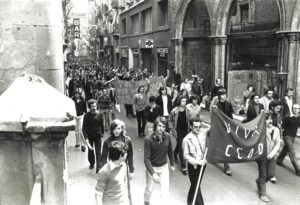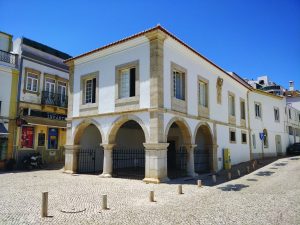Kostis Kornetis, Universidad Autónoma de Madrid. Academic Advisor of the Commissioner for the Commemoration of “Spain in Freedom: 50 years” Cover image: Screenshots from the video of the campaign Democracy Is Your Power, presented as the closing highlight of the Spain in Freedom commemoration. The word ‘restless’ in this article’s title echoes Inquietud. Libertad y …
In the 1970s, the collapse of the Estado Novo (New State) and the Francoist state took place, two of the longest-lasting dictatorships in the contemporary history of Western Europe. This year marks half a century since the military coup carried out by officers of the Armed Forces Movement (MFA) that overthrew Prime Minister Marcelo Caetano, leading to the Carnation Revolution on 25 April 1974. Next year will mark 50 years since the death of the dictator Francisco Franco on 20 November 1975, who became head of state during the Spanish Civil War (1936-1939) and the beginning of the political shift towards the transition to democracy in Spain.
On 27 April 2024, the doors of the new national museum were opened. The President of the Portuguese Republic, Marcelo Rebelo de Sousa, presided over the official ceremony as part of the 50th-anniversary celebrations of the Carnation Revolution. Half a century after the prisoners were freed, the terrible Peniche Fortress has finally become an essential museum for understanding the longest dictatorship in Western Europe and celebrating the Portuguese people’s fight for freedom.
Marie-Louise Jansen. Director of Contested Histories Project, Institute for Historical Justice & Reconciliation, Euroclio–European Association of History Educators



